Are you looking to create a solid foundation for your data processing activities? A well-structured Data Processing Agreement (DPA) is essential for ensuring compliance and protecting the interests of all parties involved. This template will guide you through the crucial components of a DPA, making it easy to understand your obligations and rights. Continue reading to unlock valuable insights and practical tips for crafting an effective agreement!
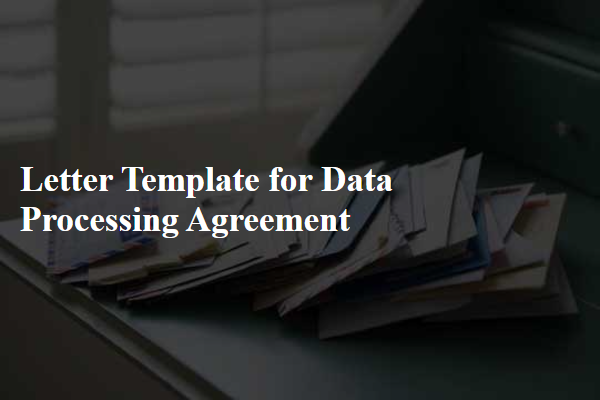
Purpose and Scope
The purpose of the Data Processing Agreement (DPA) is to outline the responsibilities and obligations of both parties involved in the processing of personal data, particularly under regulations such as the General Data Protection Regulation (GDPR) enacted in the European Union. The scope of the DPA encompasses various data types, including personal identifiers (such as names, addresses, and email information) and sensitive personal data (for instance, health records and financial details). This agreement delineates the specific data processing activities to be conducted, including collection, storage, and handling practices, ensuring compliance with legal requirements and safeguarding individual privacy rights. It is crucial for organizations operating in data-sensitive environments such as healthcare, finance, or any sector dealing with personal information to establish a clear framework for data management, including roles of data controllers and processors as defined by jurisdictions like the GDPR or the California Consumer Privacy Act (CCPA).
Data Protection Obligations
Data processing agreements (DPAs) establish essential guidelines to ensure compliance with data protection laws, such as the General Data Protection Regulation (GDPR) in the European Union. Notably, key obligations include ensuring confidentiality around personal data handling, which refers to any information relating to an identified or identifiable person. Data processors, which may include service providers like cloud storage companies, must implement stringent security measures including encryption and access controls to protect sensitive data. Moreover, timely reporting of data breaches, defined as unauthorized access or loss of personal data, is crucial and must occur within 72 hours. Furthermore, clarity on data retention periods is essential, where personal data must only be stored as long as necessary for the purposes of processing. These obligations help assure organizations that their data handling practices comply with legal standards, reducing the risk of significant penalties, which can reach millions of euros or a substantial percentage of annual global turnover.
Rights and Responsibilities
In data processing agreements, clear delineation of rights and responsibilities is essential for both data controllers and data processors. The data controller retains ownership of the personal data, ensuring compliance with relevant regulations such as the General Data Protection Regulation (GDPR), which governs data protection throughout the European Union. Data processors, responsible for processing the data on behalf of the data controller, must implement rigorous security measures, including encryption and access controls, to safeguard the data against breaches. Additionally, processors must notify controllers of any data breaches within 72 hours as stipulated by GDPR standards. In sharing data, compliance with specific purposes and limitations outlined in the agreement is crucial, ensuring that data is not used for unauthorized purposes. Regular audits and assessments may also be necessary to verify adherence to agreed-upon practices and standards.
Data Transfer and Security Measures
Data transfer agreements ensure compliance and security in handling sensitive information between organizations. In the realm of cloud computing, especially under regulations like the General Data Protection Regulation (GDPR), stipulations outlining the transfer of personal data between countries are crucial. Specific measures must be implemented to safeguard data during transfers, such as encryption protocols and secure access controls. Data security is paramount; organizations often invest in robust firewalls and intrusion detection systems to protect data integrity. Additionally, regular audits and risk assessments help identify vulnerabilities, ensuring adherence to best practices and legal requirements regarding data processing. Ensuring clear definitions of roles and responsibilities in the data transfer process empowers organizations to maintain accountability and transparency.
Termination and Dispute Resolution
In a data processing agreement, termination clauses outline conditions under which either party can prematurely end the agreement, including events like breach of contract (a violation of agreed terms), mutual consent (agreement by both parties), or change in applicable law (new regulations impacting data processing). Additionally, dispute resolution mechanisms detail methods for addressing conflicts, such as mediation (a facilitated negotiation process), arbitration (a binding decision by a neutral third party), or litigation (formal court proceedings), ensuring parties have a clear pathway for conflict resolution and minimizing potential legal costs. Timelines for notice periods (how long a party must inform the other before termination) and steps to resolve disputes should be explicit, fostering an understanding of each party's rights and responsibilities.
Letter Template For Data Processing Agreement Samples
Letter template of Data Processing Agreement for Educational Institutions
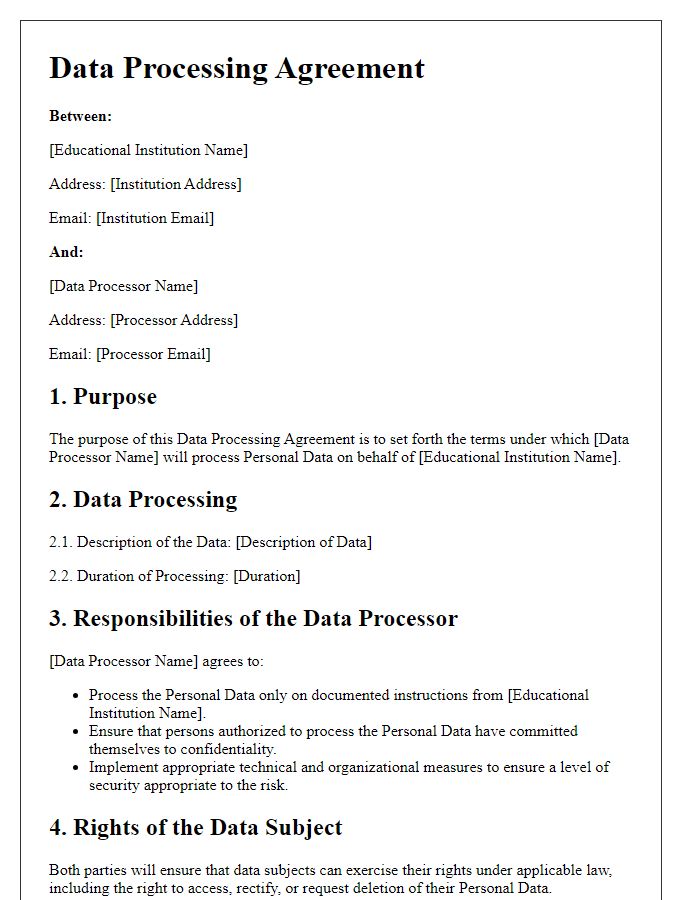
Letter template of Data Processing Agreement for Customer Relationship Management
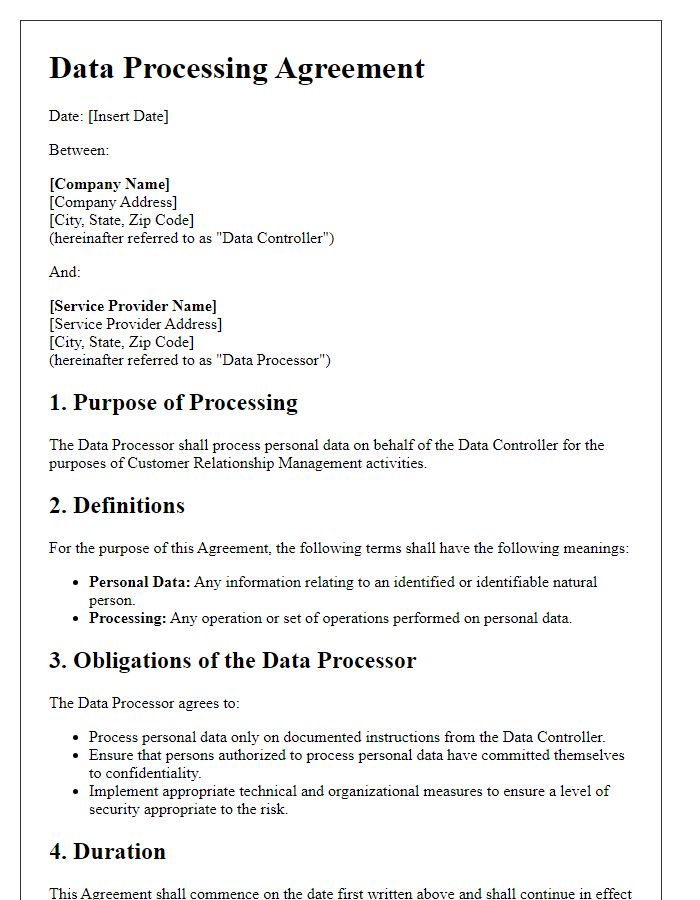

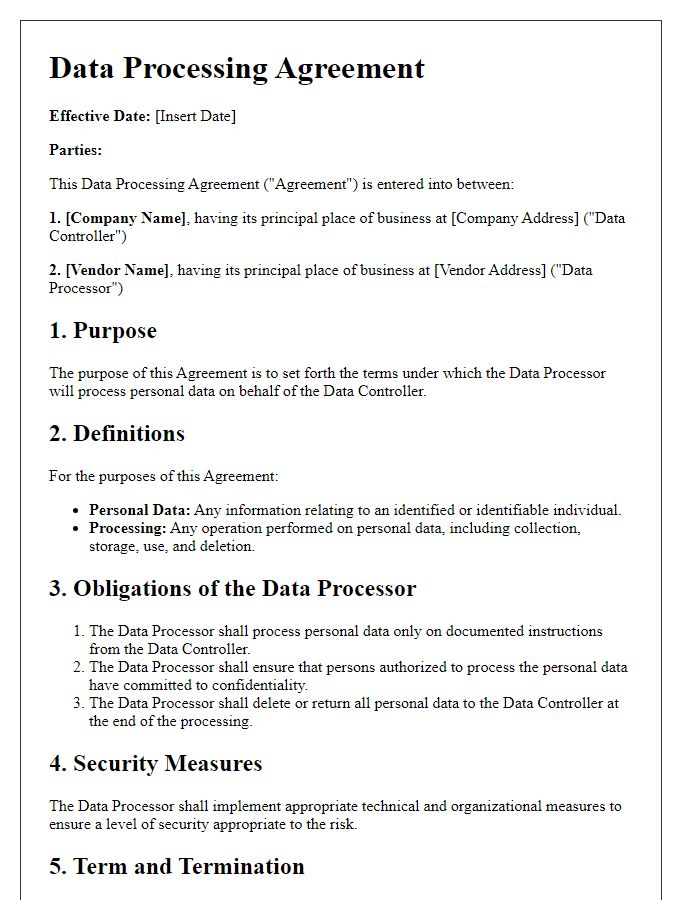
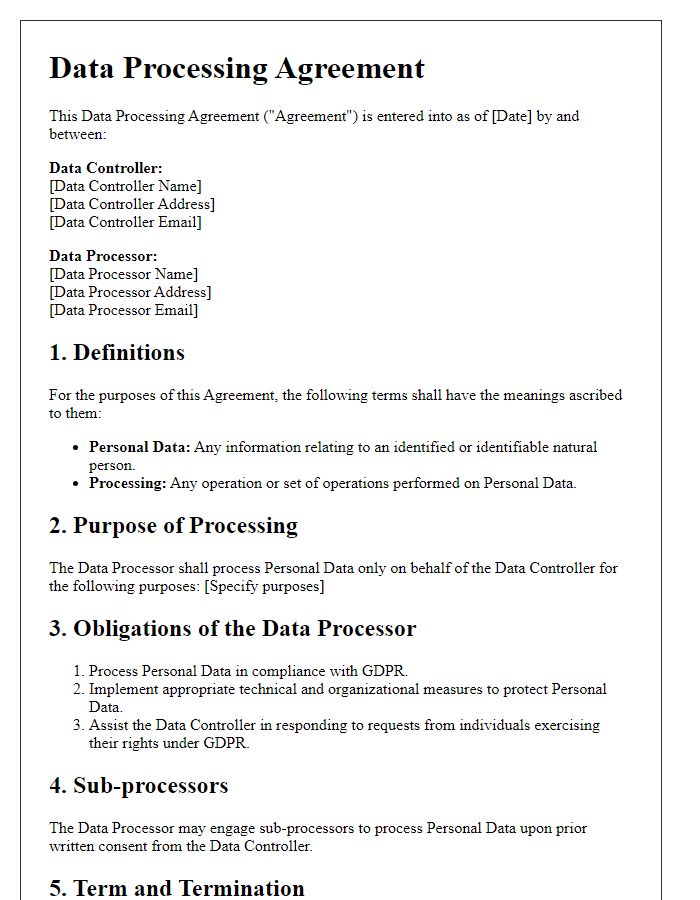
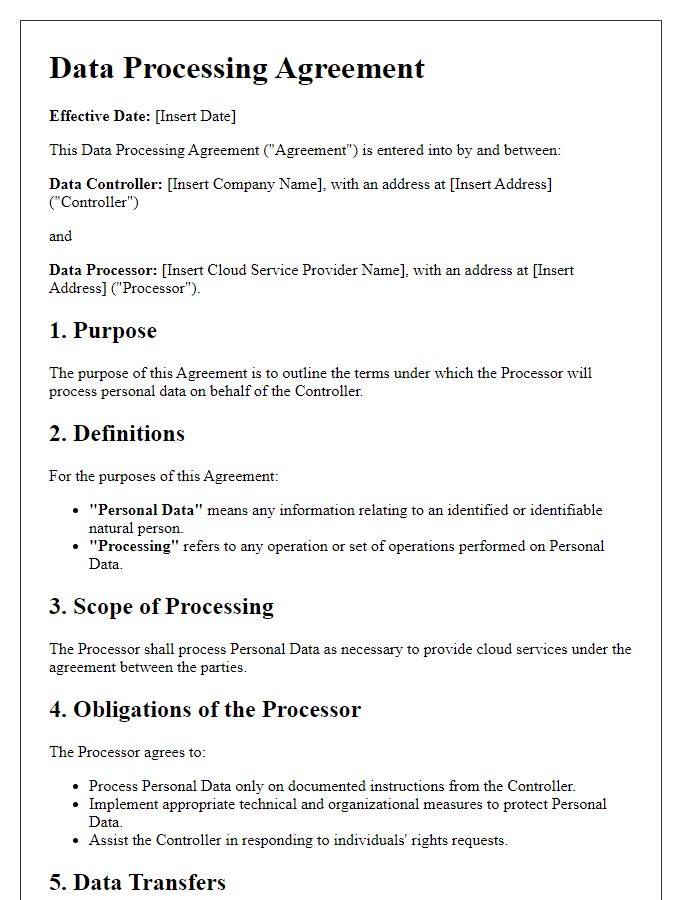
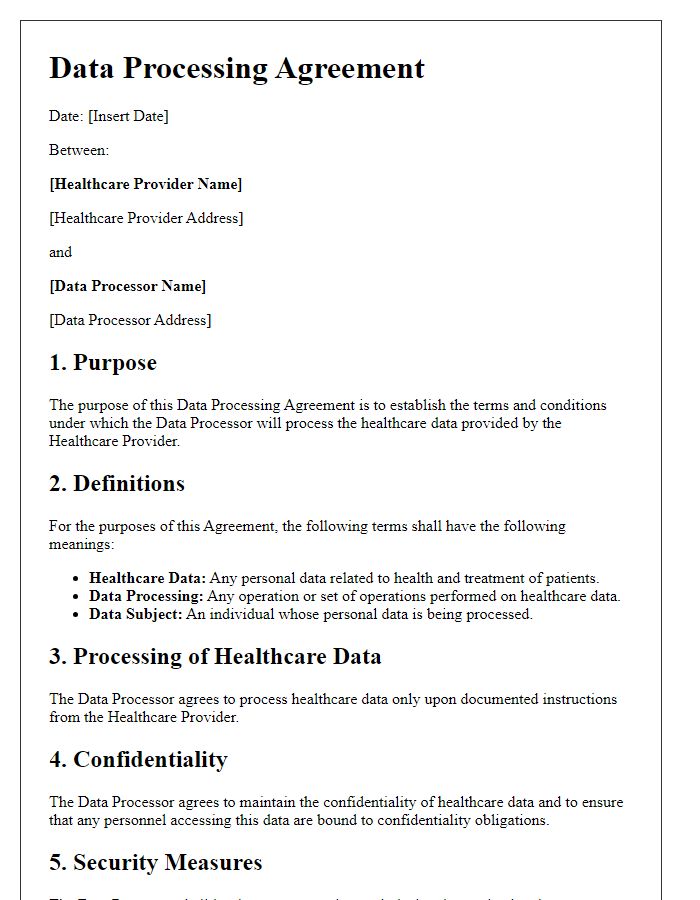
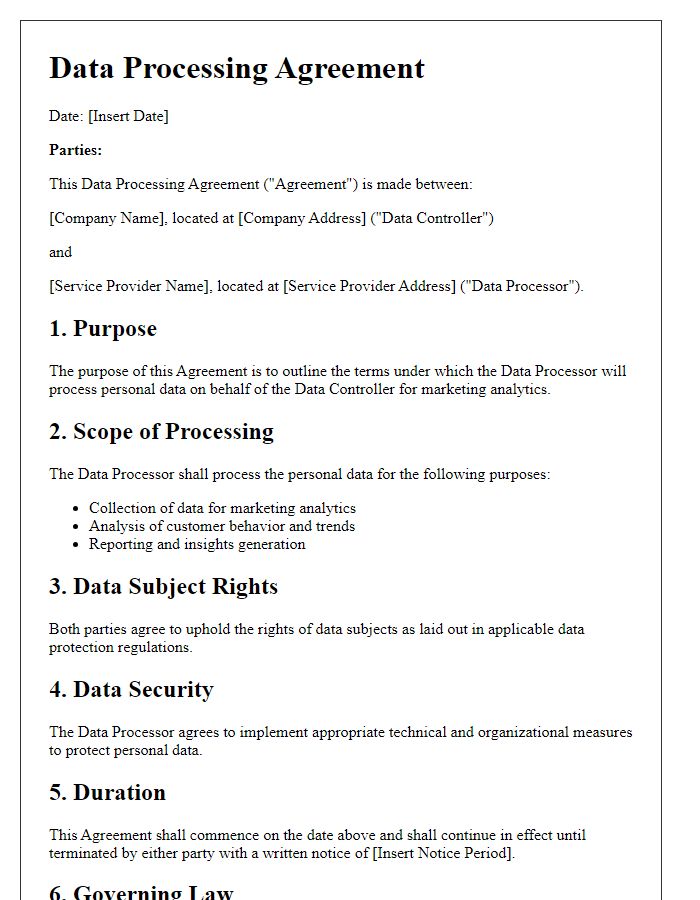
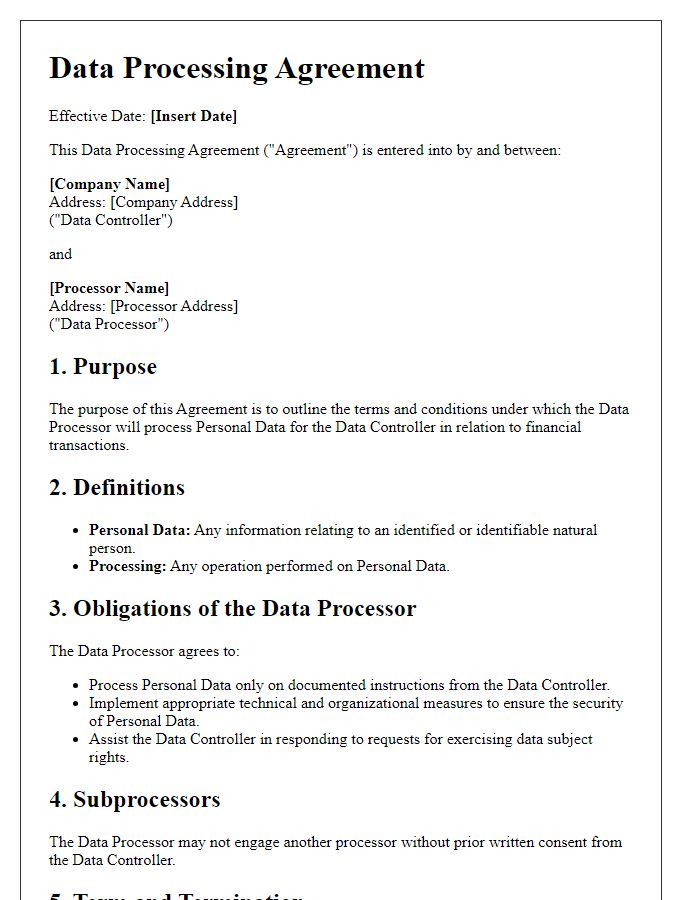
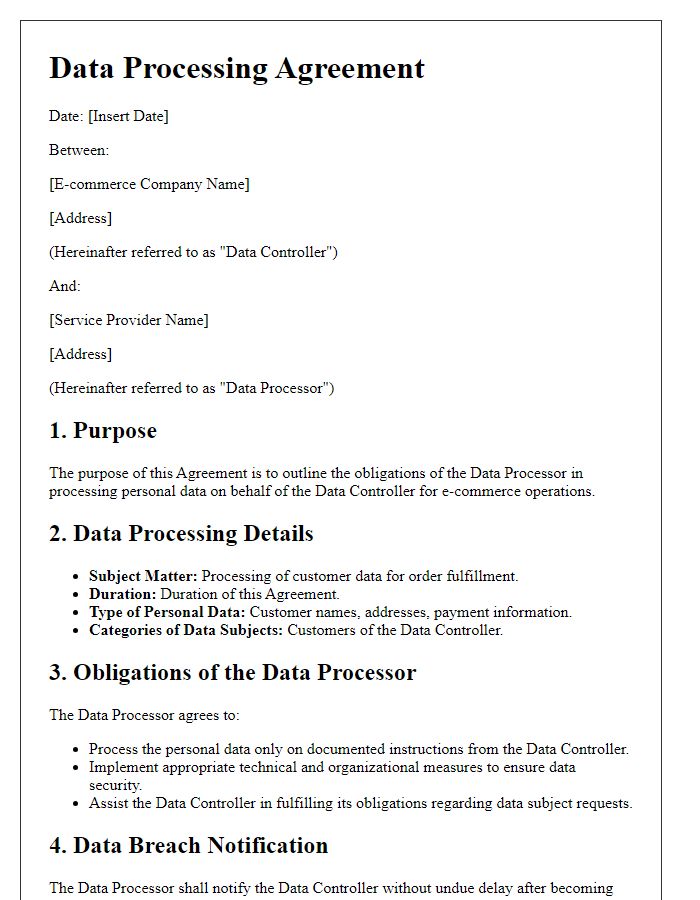
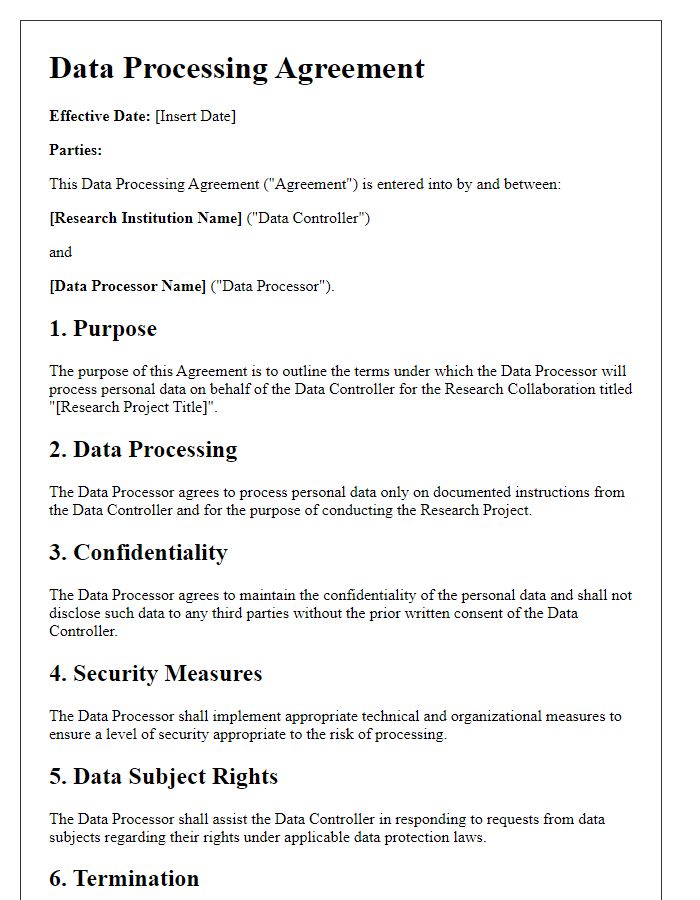


Comments